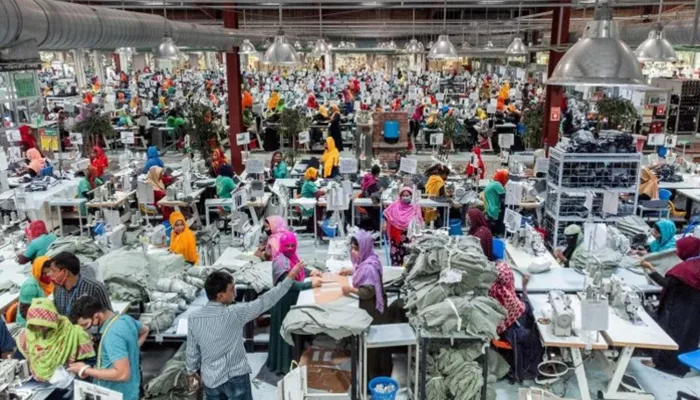A new report, titled “Paying the Price for Fashion: Securing a Living Wage for Bangladesh’s Garment Workers,” outlines key recommendations for global fashion brands and policymakers to address wage disparities in Bangladesh’s garment sector. The report arrives as the European Union (EU) adopts its Corporate Sustainability Due Diligence Directive (CSDDD), a framework aimed at improving corporate responsibility.
Rising Wages, Still Below Living Standards
Recently, Bangladesh raised its national minimum wage from 8,000 taka to 12,500 taka (approximately $66.95) per month. However, the report highlights that this is still only 38% of what is considered a living wage. As a result, many garment workers in the country struggle to afford basic needs like food, housing, healthcare, and education. This situation often leads to cycles of debt and exploitation.
Bangladesh’s Role in Global Garment Production
Bangladesh is a key player in the global garment industry, particularly in fast fashion. The country’s garment and textile sector represents over 10% of its GDP, nearly 85% of its export earnings, and provides jobs for around 4.3 million people. The report notes that Bangladesh’s low labor costs, textile expertise, and manufacturing capacity make it a crucial supplier for many European fashion brands.
Unfulfilled Promises from Global Brands
Despite pledges from many global brands to ensure living wages for workers, progress has been slow. The report references research showing that, while nearly all brands have promised to adjust wages to match the new minimum wage, 79% have not delivered on those commitments.
Root Causes of Low Wages
The Swedwatch report identifies two main factors contributing to low wages in Bangladesh’s garment sector:
Weak Bargaining Power: Workers face significant challenges in negotiating better pay due to poor enforcement of labor laws and obstacles to unionization.
Unfair Purchasing Practices: International buyers often pressure suppliers to reduce prices and speed up production, a practice known as “price squeezing.” This forces suppliers to cut costs, including worker wages, to meet buyers’ demands.
Recommendations for Action
The report stresses the importance of collaboration between global brands and EU policymakers to improve wages and working conditions for garment workers. It suggests that global brands should align their due diligence processes with international standards like the UN Guiding Principles on Business and Human Rights (UNGPs) and the OECD Guidelines for Multinational Enterprises.
On the policy side, the report urges EU member states to address gaps in the CSDDD by providing clearer guidelines for fair purchasing practices. It also recommends expanding the directive to require brands to adopt ethical purchasing policies that prioritize fair wages within their supply chains.
Research and Findings
The report builds on research conducted by Swedwatch in partnership with the Awaj Foundation, an organization dedicated to workers’ rights in the garment sector. The research involved interviews and focus group discussions with workers and managers in garment factories in areas like Dhaka, Ashulia, and Tongi, particularly those supplying the EU market.
At the time of publication, the Bangladesh Garment Manufacturers and Exporters Association (BGMEA) had not responded to a request for comment.
Related topics:
- Mosaic Brands Faces Voluntary Administration, Burdened by $250M Debt
- Angelina Jolie Is Holding On to This Fall Essential for the Long Haul
- Penélope Cruz Opens Up About Her Passion for Fashion and Upcoming Movies with Johnny Depp and Christian Bale

